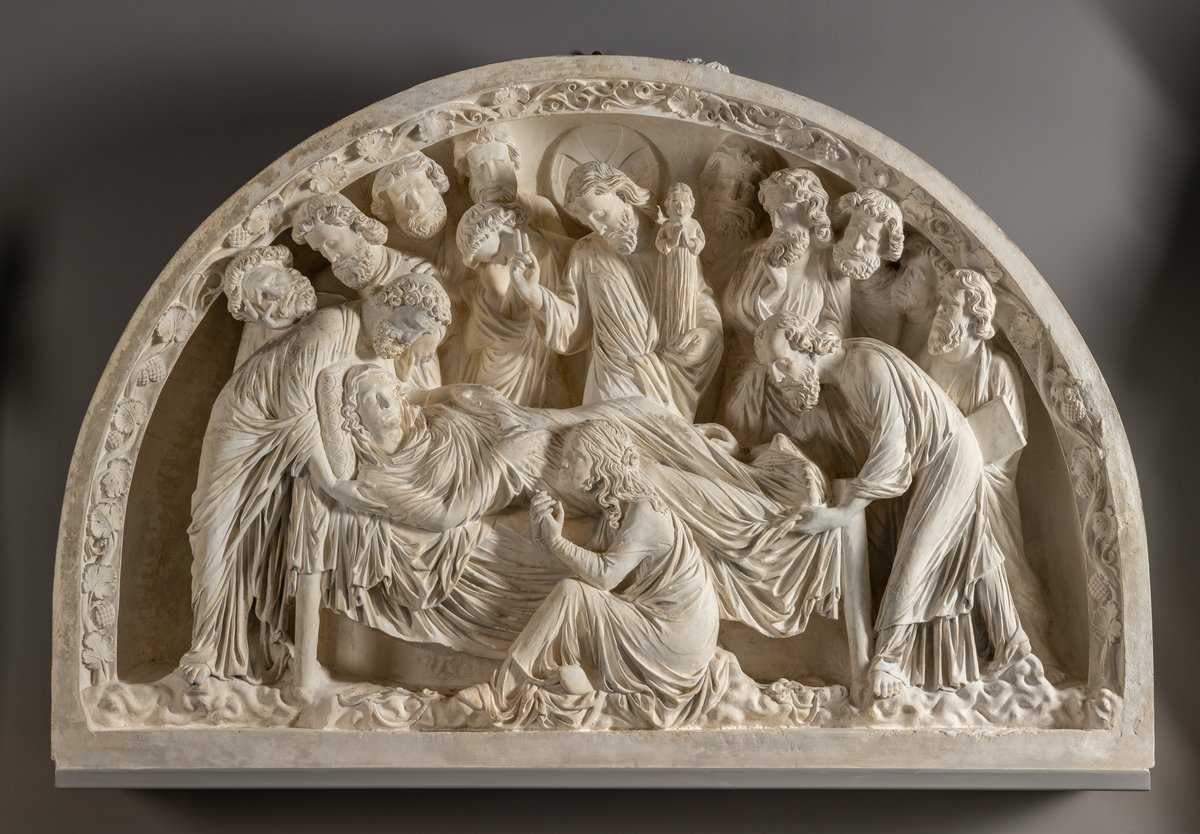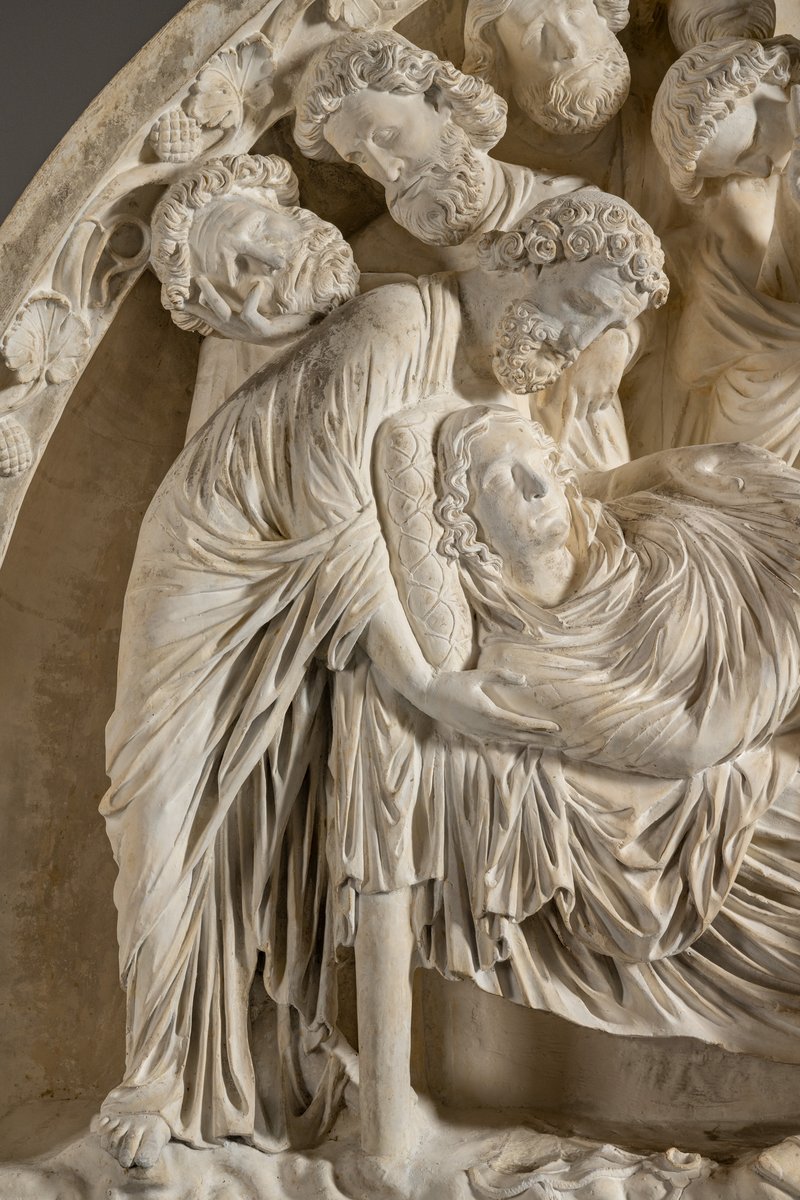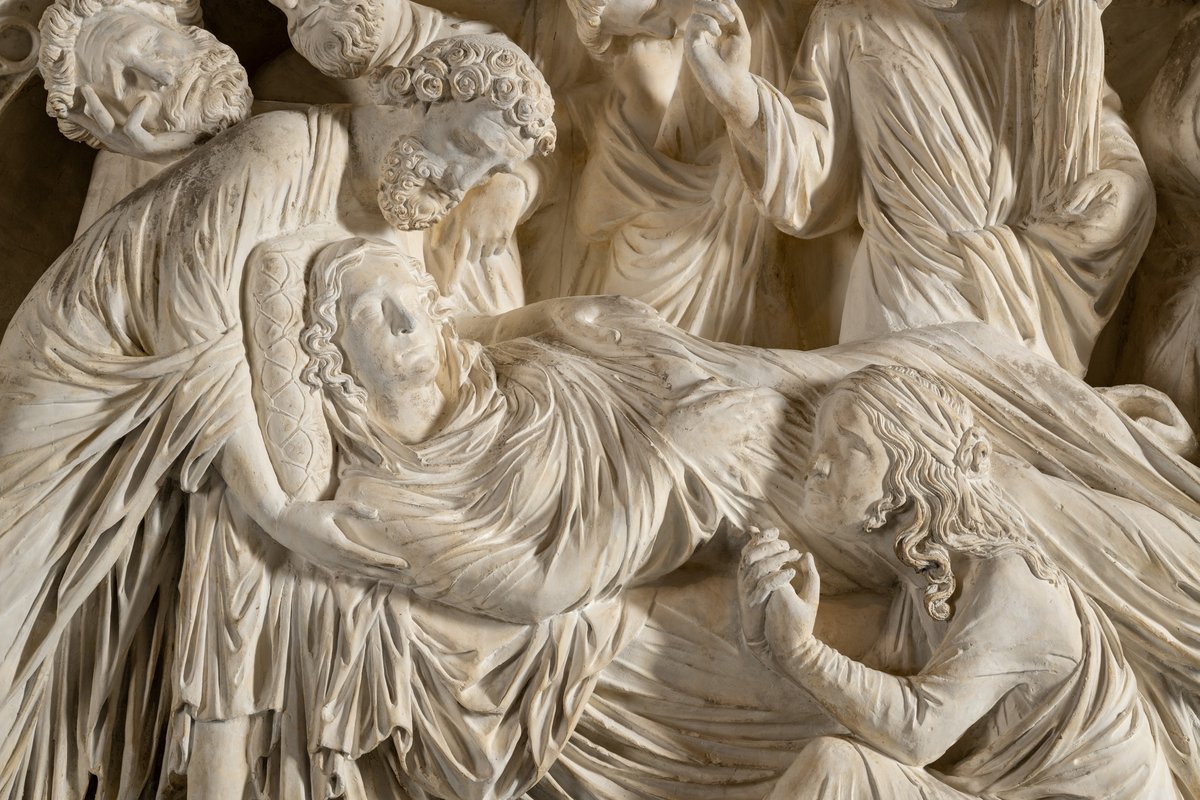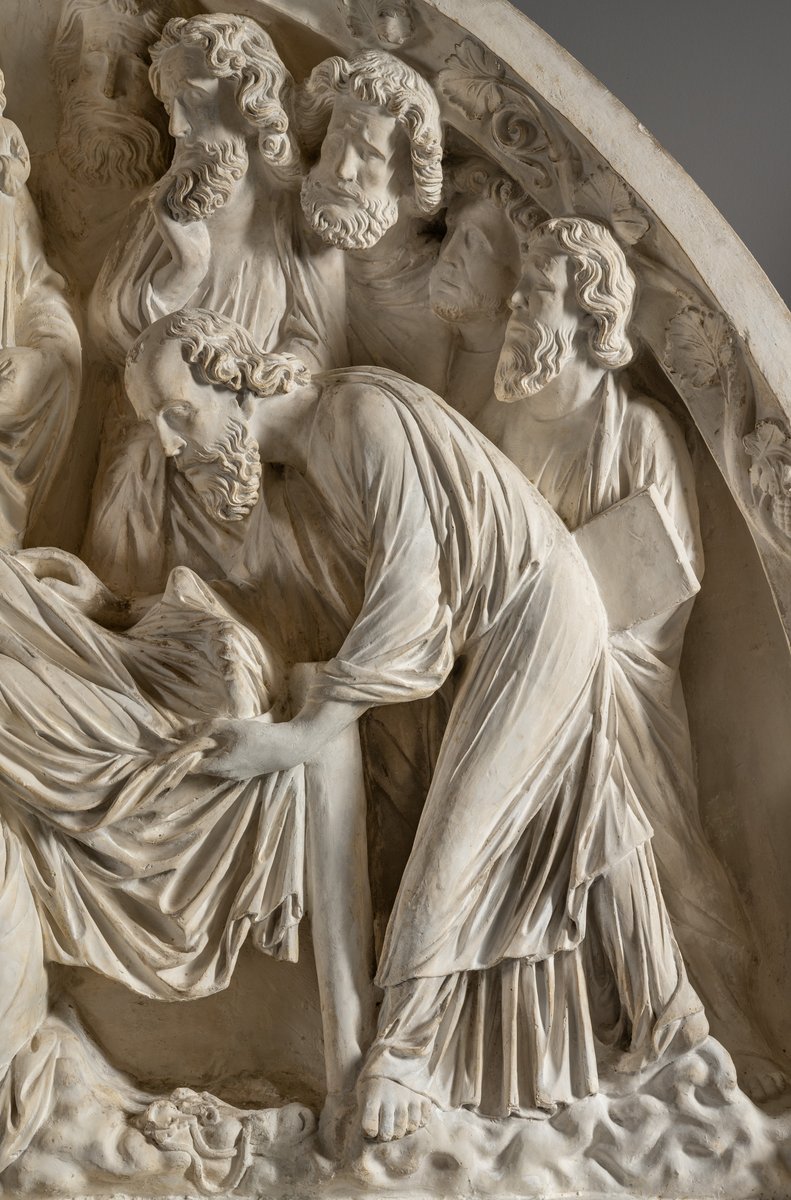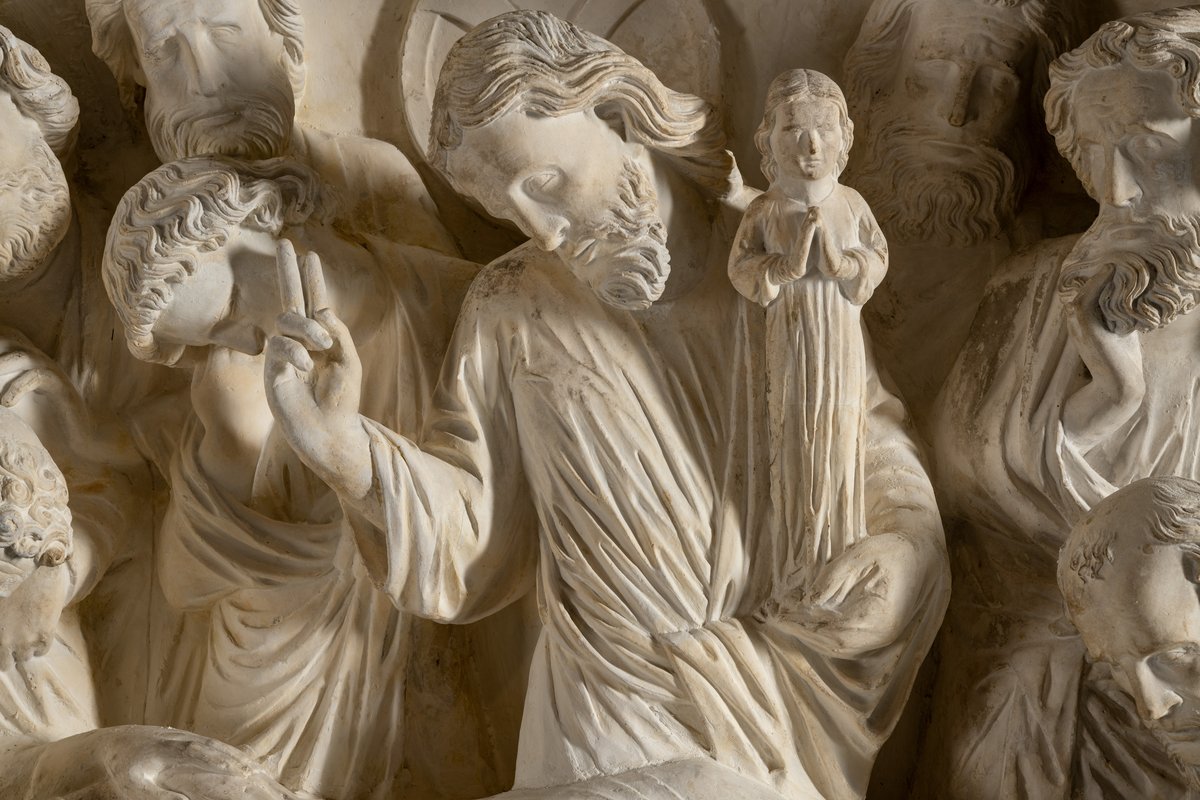Death of the Virgin
Master of the Southern Transept of Strasbourg Cathedral, Casting Workshop of the Kaiser-Friedrich-Museum (cast maker)- Artist
-
Master of the Southern Transept of Strasbourg Cathedral
active in the first quarter of the 13th century
Casting Workshop of the Kaiser-Friedrich-Museum
(cast maker)
Berlin, first half of the 20th century
- Dated
- ca. 1215-1225 (original), 1909 (cast)
- Classification
- relief, plaster cast
- Medium
- plaster cast
- Dimensions
- 136 × 208 × 34 cm
- Inv.no.
- Rg.27
- Department
- Sculptures - Plaster casts
- Current Location of the Original Artwork
- France, Strasbourg, Cathedral
The double portal of the southern transept of Strasbourg Cathedral was built in the early thirteenth century and is flanked by sculptures of allegorical figures. The crowned female figure holding a cross on the left is Ecclesia (Rg.18), the personification of the New Testament and the triumphant Christian Church. The figure on the right with the Tables of the Law and a broken lance is the defeated Synagoga (Rg.19), embodying the Old Testament and Judaism. The reliefs in the semicircular tympanum of the double portal depict the Dormition and the Coronation of the Virgin. The plaster cast collection of the Museum of Fine Arts preserves a copy of the former. The construction and decoration of the transept were carried out by an innovative workshop in the 1220s. The elongated figures of the portal, the richly folded draperies, the realistic rendition of the bodies, and the vivacity of the figures of the reliefs show the novel naturalism of Northern Gothic art inspired by antiquity. Most of the sculptural decoration of the portal was destroyed during the French Revolution but the figures of Ecclesia and the Synagoga were taken to a safe place in 1793 and the tympanum reliefs were also protected from being vandalised. Commissioned by the museum in 1909, the cast was made in the casting workshop of the Kaiser-Friedrich-Museum, Berlin. It was exhibited in the Romanesque Hall in 1910.
